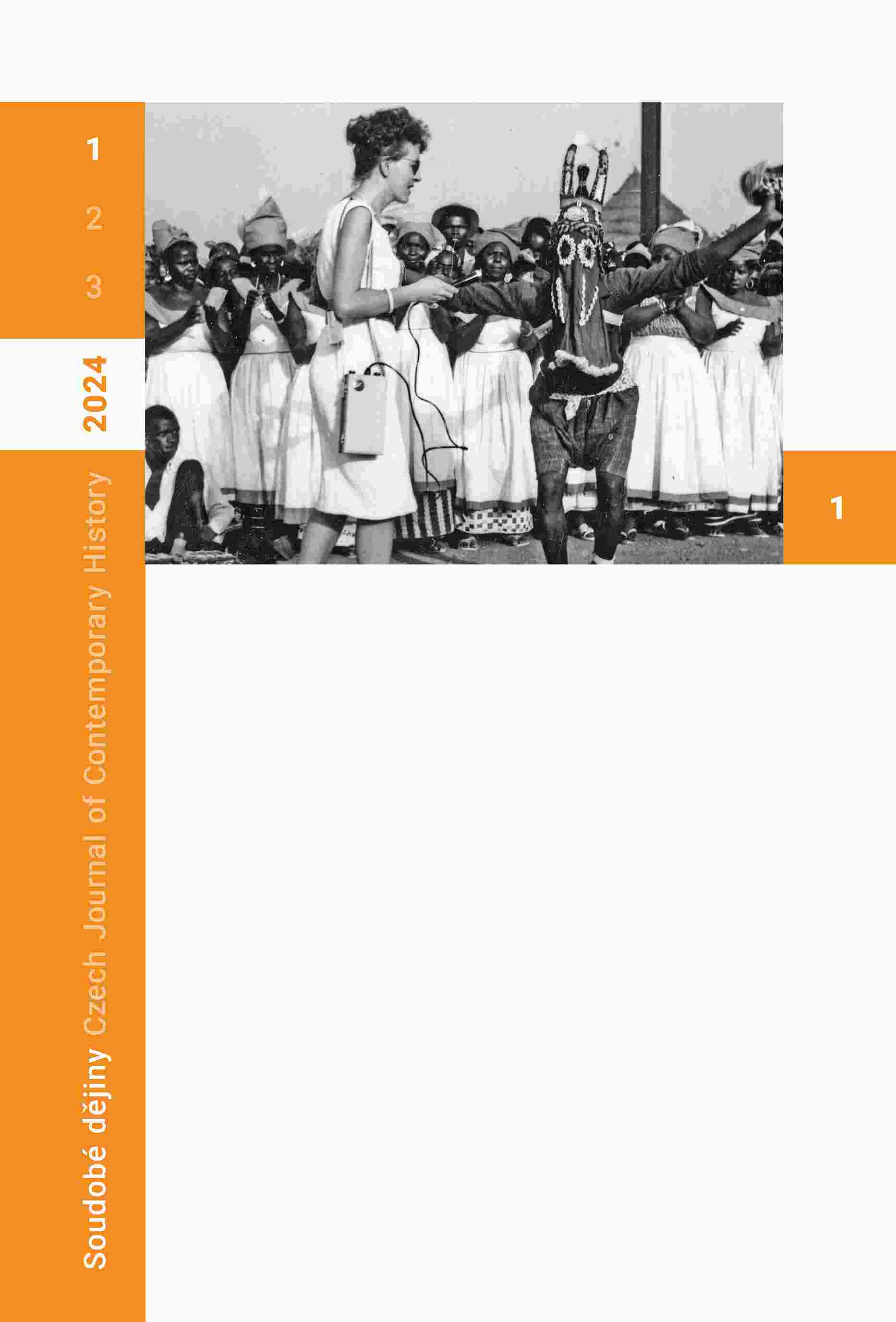"Nikdy jsem neměl o ničem pochyby, a o nikom, nyní mi nezbývá než říci, že jsem se celý život mýlil":
Takzvaná Kolderova komise a dopad jejích odhalení na stranickou veřejnost
"I Have Never Had Any Doubts about Anything or Anyone, and Now I Have No Choice but to Say that I Have Been Wrong All My Life":
The So-called Kolder Commission and the Impact of Its Revelations on the Party Public
Author(s): Jan DobešSubject(s): History, Political history, Post-War period (1950 - 1989), History of Communism
Published by: AV ČR - Akademie věd České republiky - Ústav pro soudobé dějiny
Keywords: Czechoslovakia;Communist Party of Czechoslovakia;political trials;political rehabilitations;de-Stalinization;Drahomír Kolder Commission
Summary/Abstract: In September 1962, under the pressure of advancing Soviet de-Stalinization and critical domestic voices, the Presidium of the Central Committee of the Communist Party of Czechoslovakia set up a commission to investigate the political trials conducted between 1949 and 1954 against former high-ranking party and/or state officials and to prepare the grounds for the rehabilitation of those unjustly convicted. It is often referred to as the Kolder Commission after its chairman, Drahomír Kolder (1925–1972), a member of the broader party leadership. This study provides a comprehensive account of the circumstances of its formation, composition, functioning, conclusions, the personnel implications drawn from them, and the subsequent reactions within the party’s membership base. The Commission was a continuation of the work of the so-called Barák Commission, which worked under the leadership of former Interior Minister Rudolf Barák in the mid-1950s. As the author points out, there were two fundamental differences between these commissions: 1) the Kolder Commission consisted mostly of younger functionaries who had not compromised themselves by significant involvement in the trials; and 2) the party leadership expected from them real results aimed at correcting the flagrant injustices associated with the Stalinist trials, which could no longer be defended. In cooperation with the highest judicial authorities, the Commission fully confirmed, greatly expanded and specifically documented earlier findings (which, however, remained secret and were met with a reluctance to make corrections) that there had been widespread violations of the law, including the use of violence, that the charges brought in the trials were fabricated or absurdly distorted, and that the sentences handed down were unjust or even pre-determined. This led to the conclusion that there had been a systematic failure of the security and judicial apparatus, and the extent to which the leading organs and officials were responsible for these “miscarriages” and the search for specific culprits was the subject of subsequent heated discussions in the party leadership, with the hitherto untouchable Klement Gottwald not spared from criticism. A fundamental limitation of the Commission’s mandate, however, was that it did not investigate the political trials of non-communists. The Commission‘s final report was approved by the highest party organs in April 1963, and it decided both on the full civil and judicial (not always party) rehabilitation of almost all those convicted in the revised trials, and on the removal of some senior officials and the punishment of several State Security investigators. The summarized conclusions of the Commission were then presented to the party public at all levels, from the regional to the basic organizations of the Communist Party, in hastily organized meetings. A probe into the discussion of potentially explosive material in these selected organizations in Bohemia, Moravia and Slovakia forms the last part of the study. The Party leadership demanded that the Commission’s revelations and the measures taken be discussed, but at the same time it wanted to regulate this discussion and keep it within established limits, which was not always possible. The author shows the wide range of reactions of party members, from defending Gottwald’s leadership and fears of re-evaluating the past, to distrust and scepticism of the party leadership’s ability to tell the truth, to harsh criticism of it and openly “anti-party” speeches. The author concludes that the main purpose of the leadership-initiated review of the trials and rehabilitation of their victims was to vividly reaffirm the leading role of the Communist Party, which was formally enshrined in the 1960 Czechoslovak Constitution. The party was to prove that it could not only be at the forefront of building socialism but also of correcting mistakes and injustices.
Journal: Soudobé Dějiny
- Issue Year: XXXI/2024
- Issue No: 1
- Page Range: 15-62
- Page Count: 48
- Language: Czech

